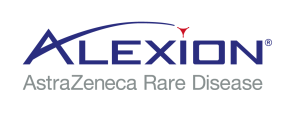Here are words you might come across as you read about myasthenia gravis, and when you talk about the disease with your doctor.
Acetylcholine
A chemical released by a nerve ending that activates a muscle cell to contract and generate force.
Acetylcholine receptor
A protein substance on the muscle cell membrane which accepts acetylcholine from the nerve ending.
Acetylcholine receptor antibody test
A blood test for these abnormal antibodies which can be performed to see if they are present. Approximately 85% of MG patients have this antibody and, when detected, is a guaranteed diagnosis.
Acetylcholinesterase
An enzyme located in the gap between a nerve ending and the muscle cell membrane whose function is to inactivate acetylcholine.
Anti-MuSK antibody test
A blood test for patients who have tested negative for acetylcholine antibodies. Of these, 40% to 70% test positive for the anti-MuSK antibody. The remaining patients may have an antibody to LRP4 or an unidentified antibody causing their MG.
Autoimmune disease
A disorder caused when the body fails to recognize itself and mounts an immune attack (usually reserved for invading bacteria or viral infections) producing antibodies against its own tissue. In MG, the acetylcholine receptors are the victims of this misdirected immune attack.
Bulbar MG
Myasthenic weakness involving the muscles for speech, chewing and swallowing. The name derives from the fact that the nerve supply to those structures comes from the medulla or “bulb” of the lower brain.
Corticosteroids (steroids)
Hormones used to dampen the faulty immune response that occurs with MG.
Crisis
A term for “acute respiratory insufficiency” developing over hours or days and severe enough to require assisted mechanical support for breathing. Usually, the respiratory insufficiency is the result of weakness of the diaphragm and intercostals (rib) muscles, but it also can occur if weak throat muscles obstruct the airway.
Diplopia
The perception of two images in the field of vision. Ocular myasthenia may affect the eye movements in vertical, horizontal, or diagonal directions, with variable degrees of double vision.
Dysarthria
Difficulty speaking, producing slurred, breathy words which are poorly understood. It results from weakness of the muscles used for speech.
Dysphagia
Difficulty or inability to swallow.
Generalized MG
MG affecting more than just the eye muscles (contrasted with pure ocular MG).
Hyperplasia of the thymus
When the number of thymus cells increases and the thymus becomes enlarged.
Immunosuppressant drugs
Medications which modulate or suppress the body’s immune system, to hopefully reduce symptoms of an autoimmune disease. In MG, a reduction of circulating acetylcholine receptor antibodies may improve strength.
Intravenous Immune Globulin (IVIg)
An expensive medical procedure involving intravenous infusion of human gamma globulin antibodies pooled from multiple donors, which results in rapid but temporary relief of MG symptoms.
MuSK
Patients without serum antibodies to acetylcholine receptor (seronegative MG) may instead have antibodies to muscle-specific kinase (MuSK), another protein at the neuromuscular junction.
Neonatal myasthenia
Myasthenic weakness lasting two to twelve weeks in a newborn infant as the result of a passive transfer of acetylcholine receptor antibodies from the mother.
Neuromuscular
Nerves and muscles.
Ocular myasthenia
An autoimmune condition characterized by variable weakness of the muscles of the eyelids and eye movements. This leads to droopy eyelids (ptosis), double vision (diplopia), or both.
Plasmapheresis
Also called “plasma exchange.” An expensive medical procedure that separates the blood into its two major components: plasma (the liquid part of the blood) and cells. The blood cells are then returned to the patient, with the plasma being replaced by a blood product called albumin or a plasma substitute. Performed by a machine similar to that used for kidney dialysis.
Ptosis
Droopiness of eyelids caused by muscle weakness. In ocular myasthenia, ptosis is usually variable and worsens as the day progresses.
Seronegative MG
Myasthenia gravis that is clinically suspected in patients even though blood tests for the acetylcholine antibody or MuSK antibody are negative.
Skeletal muscles
Any muscle you can move by thinking about it
Thymoma
Tumor of the thymus gland.
Thymus
A flat, H-shaped gland lying mainly behind the breastbone (sternum) and in front of the heart. It is important for immune system development early in life, and shrinks with aging.
Reviewed by the Conquer MG Medical Advisory Board, April 2016.




